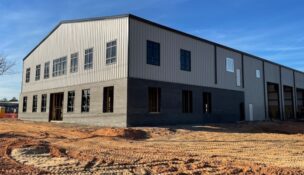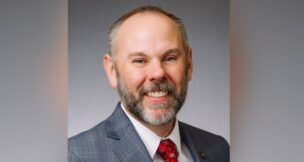Repair program keeps S.C. residents safe at home
Melinda Waldrop //December 8, 2020//

Every so often, Ed Causebrook gets a phone call that always makes him smile.
The caller is an elderly lady, living alone, who received emergency home repairs several years ago through a partnership between Causebrook’s organization, the Housing Development Corp. of Rock Hill, and the South Carolina State Housing Finance and Development Authority’s Housing Trust Fund. The woman received a new heating system, roof, and flooring, along with a few seasonal extras.
“Being near Thanksgiving, we were able to get her a turkey and food,” said Causebrook, the Rock Hill group’s housing rehabilitation coordinator. “And she still calls me, every once in a while, just to see how I’m doing. That’s what’s rewarding.”
Causebrook’s caller is one of hundreds of people helped each year by a pair of SC Housing Trust Fund programs which reimburse eligible grantees for essential repairs on homes owned by those meeting income requirements. The two program categories, emergency repair and owner-occupied repair, made up more than half of a total of $6.8 million HTF awards for fiscal year 2020 in the state.
The COVID-19 pandemic forced the suspension of the owner-occupied program, an extensive initiative which covers up to $25,000 in home repairs and requires a greater in-home presence by contractors. The emergency repair grant program, which covers up to $10,000 in essential repairs necessary for the life or safety of the occupant, is still operating and in need, officials say, of more nonprofit participants as the pandemic drains organizations’ staff and resources.
“The pandemic has definitely put a dent in the number of nonprofits that are participating in the program,” Jennifer Cogan, director of community development for SC Housing, said. “We have 40 or 41 that are approved to participate, and what we’re seeing is only about half of those right now are actively submitting (repair) applications.”
Nonprofits apply to SC Housing to become program-certified and also handle application intake from their respective communities. Once a homeowner’s application is approved and repairs agreed upon, SC Housing enters a funding agreement with the nonprofit to pay for repairs.
The programs are greatly utilized in the Midlands and in the Upstate, statistics show. In fiscal year 2020, of the state’s total of 227 emergency repair grants and 31 owner-occupied repair grants, 51 took place in Greenville County, while 43 occurred in Richland County.
“The need is overwhelming,” Cogan said. “The amount of resources that we have available with the plethora of programs that we do administer here, not just Trust Fund, it’s not enough to make a dent, unfortunately. We do everything we can to stretch our resources as far as possible.”
Ross Bowers, senior coordinator of Greenville-based community action agency SHARE, estimates that organization helps around nine homeowners a month who are often elderly and trying to get by on Social Security checks.
“It’s just not enough in most cases to handle emergencies, such as your HVAC goes out or your roof starts leaking,” Bowers said. “It’s hard for people to come up with $8,000 to put a new roof or HVAC in your house.”
A low number of repairs in counties, such as Jasper and Bamberg, where zero repairs were recorded in 2020, does not necessarily reflect a lack of need. It can be a challenge to get nonprofits or contractors to branch out into underserved areas, said Felicia Kilgore, SC Housing Trust Fund manager. Bowers said his office, which serves Greenville, Pickens, Anderson and Oconee counties, doesn’t often field calls from Oconee County (three homes repaired in 2020) because people may not know about available resources.
Kilgore said the organization is trying to educate a wider audience about available assistance while at the same time streamlining its reimbursement processes and beefing up its list of licensed contractors.
“We haven’t really slowed down,” Kilgore said. “We get calls here in our office. I know the nonprofit organizations get calls every day.”
SC Housing’s website, www.schousing.com, includes program information for interested nonprofits.
Causebrook said his Rock Hill organization has 140 people on a wait list for repairs.
“If I have a leaky roof and I don’t stop it from leaking, it’s going to do more damage to the home. If I don’t have heat, they’re going to run space heaters and kerosene heaters and then they can’t pay their bills,” he said. “There’s so many different things that we’re doing. It’s been tough for us. People are understanding, but it’s hard for our customers to understand that they’re not alone in their situation. They’re coming to me because they have problems and they can’t afford it.”
Since the pandemic set in, Causebrook has also seen a different kind of client.
“We’re seeing customers who have never asked for help before, who have never been through this experience,” he said.
Bowers tries to help homeowners he’s encountered such as those who have gone an entire year without heat while limiting contact with an often older, more vulnerable population as much as possible.
“You still have people with those same needs,” he said. “The pandemic doesn’t realize that that person doesn’t have heat. … The coronavirus does not care, at all.”
During her 19 years as program coordinator for SC Housing, Dorothy Sutton has talked to grandmothers resorting to plastic coverings to protect beds from leaking roofs and to a child being bullied at school because his house lacked indoor plumbing.
“I’ve heard a lot of stories. I’ve cried on the phone with a lot of people,” she said. “There was a lady that was able to take a shower in her house for the first time. … I can go to bed at night knowing that somebody else is sleeping a little bit better.”
Sutton said SC Housing also helps homeowners understand legal issues surrounding deeds and probate, and she’s had to play referee between homeowners and contractors who did not get along. She has also had to temper expectations of folks expecting a TV-show-style makeover on a limited budget, and she can’t help everyone who calls.
“We can’t put more than the allowed amount into the house,” she said.
Sometimes, Sutton provides assistance that goes beyond financial concerns, like when one caller burst into tears upon learning she didn’t qualify for a grant program.
“I was able to have a long conversation with her, calm her down,” Sutton said. “I could tell I was her last resort that day. She needed somebody to listen to her. … If you listen well enough, you know when somebody’s in desperate need. The program doesn’t just repair houses. Sometimes it fulfills a human need.”
This article first appeared in the Dec. 7 print edition of the Columbia Regional Business Report.
S















